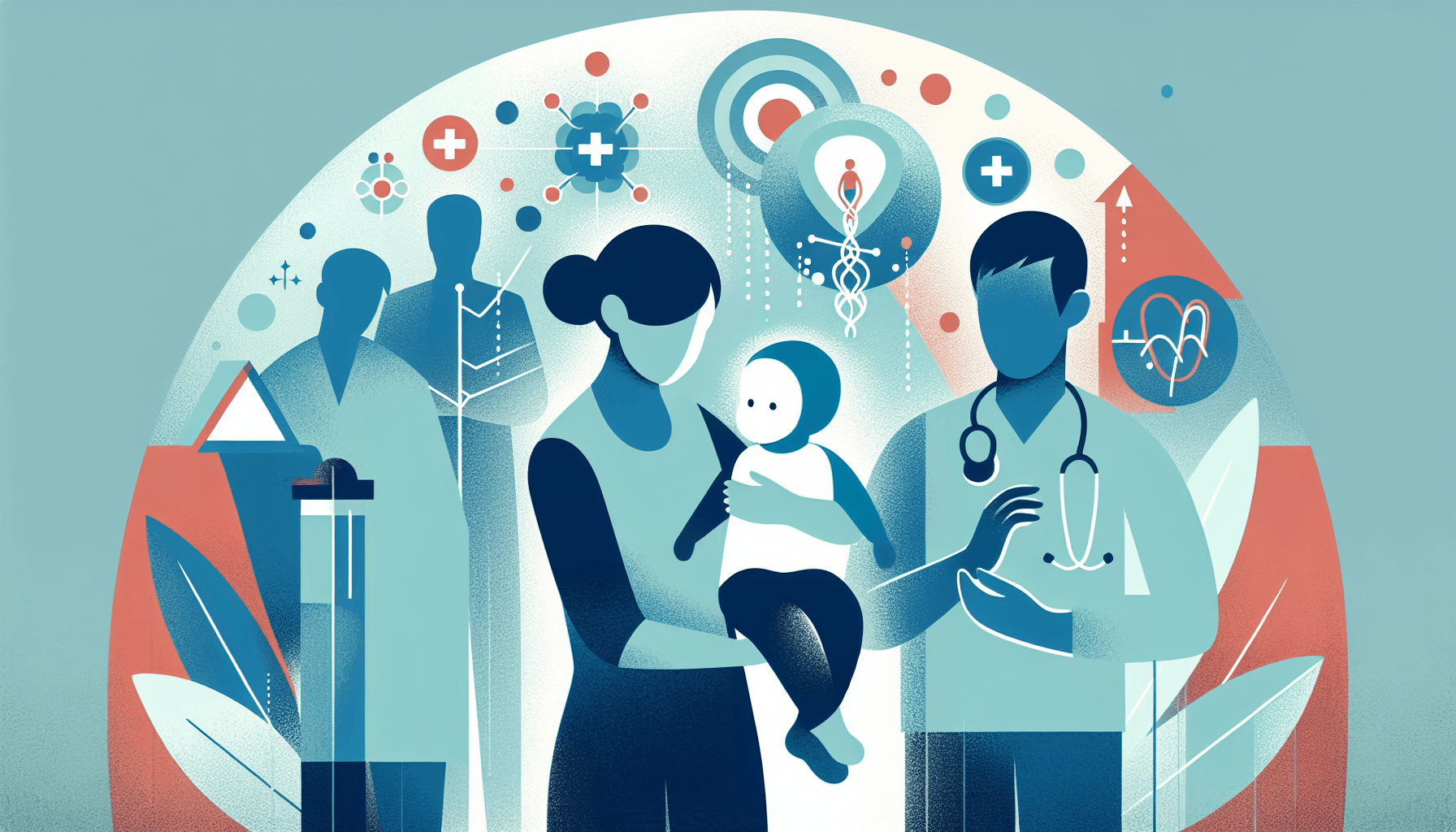7 Common and Serious Side Effects of Airsupra
Understanding Airsupra Side EffectsAirsupra is a prescription inhaler used as a rescue medication to relieve asthma symptoms in adults aged 18 years and older. It is not [...]
Read More
Medically reviewed by Alan Lucks | MD, Alan Lucks MDPC Private Practice - New York on November 20th, 2023.
Human herpesvirus 6 (HHV-6) causes 90% of cases, while HHV-7 accounts for the remaining 10%—both spread through respiratory droplets and saliva from asymptomatic adults.
The characteristic fever reaches 103-105°F for 3-7 days, then breaks suddenly just before a pink, raised rash appears on the trunk and neck within 12-24 hours.
Peak incidence occurs between 6-15 months when maternal antibodies wane but before the child's immune system fully develops—95% of children are infected by age 2.
Febrile seizures affect 10-15% of children during the high fever phase, typically lasting less than 15 minutes and causing no permanent damage.
Acetaminophen dosing is 10-15mg per kg of body weight every 4-6 hours, while ibuprofen is 5-10mg per kg every 6-8 hours for children over 6 months old.
Roseola, also known as sixth disease, is a common viral infection that primarily affects children under the age of 2. While it can be concerning for parents, most children recover from roseola without any complications. In this article, we'll discuss the symptoms, causes, diagnosis, and treatment of roseola to help you better understand this condition.
After being infected with the virus that causes roseola, a child may not show any symptoms for 5 to 15 days. When symptoms do appear, they typically include:
Sudden, high fever (over 103°F) that lasts for 3 to 7 days
Restlessness or irritability
Raised, spotty, reddish rash, mainly on the neck and trunk (appears after the fever subsides)
Diarrhea
Cough
Droopy or swollen eyelids

Roseola is caused by human herpesvirus 6 or, in some cases, human herpesvirus 7. These viruses remain in the child's body but usually stay inactive after the initial infection. Roseola is most common in infants and children between 6 and 24 months old.
Doctors can usually diagnose roseola based on the characteristic symptoms: a high fever followed by a rash. In most cases, no laboratory tests are necessary. Since roseola is caused by a virus, antibiotics are not effective in treating the condition. Instead, doctors focus on treating the symptoms to make the child more comfortable. This may include:
Acetaminophen or ibuprofen to reduce fever
Rest and plenty of fluids
Keeping the child away from others until the fever has been gone for at least 24 hours
If the child develops other symptoms or becomes very sick, the doctor may order blood or urine tests to rule out other conditions.
In some cases, a very high fever associated with roseola may cause seizures. If a child experiences a seizure, they may pass out briefly, and their arms and legs may jerk for several seconds or minutes. They may also lose control of their bladder and bowels. If your child has a seizure, call 911 immediately. Fortunately, most seizures in young children are short-lived and do not cause lasting harm.
For more information on roseola and other childhood illnesses, consult the following reputable sources:
Most children recover completely within 7-10 days with supportive care focused on fever management and hydration. While febrile seizures can be frightening, they're usually brief and harmless in otherwise healthy children. If you're concerned about high fever or rash symptoms in your young child, Doctronic can provide quick guidance on when home care is sufficient versus when medical evaluation is needed.
Understanding Airsupra Side EffectsAirsupra is a prescription inhaler used as a rescue medication to relieve asthma symptoms in adults aged 18 years and older. It is not [...]
Read MoreUnderstanding Budesonide Interactions for Safe UsageBudesonide is a corticosteroid medication used to treat conditions like asthma, Crohn's disease, and ulcerative [...]
Read MoreUnderstanding Xolair Interactions for Safe UsageXolair (omalizumab) treats severe allergic asthma, chronic hives, and nasal polyps. When starting this medication, patients [...]
Read More